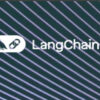
In the rapidly evolving world of blockchain technology, network congestion remains a significant challenge for many platforms. High congestion can lead to slow transaction times, high fees, and reduced user experience. Solana, a high-performance blockchain network, has gained attention for its innovative approach to addressing network congestion issues. By leveraging a combination of advanced technologies and unique protocols, Solana aims to provide a scalable and efficient solution for decentralized applications (dApps) and transactions.
This article explores how Solana effectively addresses network congestion, the technologies it employs, and the impact of these solutions on the overall performance of the blockchain.
Understanding Network Congestion in Blockchain
Network congestion in blockchain refers to a situation where the number of transactions exceeds the network’s capacity to process them in a timely manner. This can lead to several issues, including:
- Slow Transaction Times: Transactions may take longer to confirm, causing delays in user interactions.
- High Fees: As the network becomes congested, transaction fees often increase as users compete to prioritize their transactions.
- Reduced Efficiency: Overall network performance can degrade, impacting the user experience for dApps and other services.
Common Causes of Network Congestion
- High Transaction Volume: Sudden spikes in transaction volume can overwhelm the network’s capacity.
- Complex Smart Contracts: Complex or inefficient smart contracts can consume more resources, contributing to congestion.
- Scalability Limitations: Some blockchains struggle to scale effectively as the number of users and transactions grows.
Solana’s Approach to Addressing Network Congestion
Solana has implemented several innovative technologies and protocols to address network congestion effectively. Here’s a closer look at how Solana tackles this issue:
1. Proof of History (PoH)
Proof of History (PoH) is a revolutionary consensus mechanism that helps Solana manage network congestion. PoH provides a verifiable and continuous source of time-stamping for transactions. Instead of relying on a traditional network-wide clock, PoH generates a historical record of events through a sequence of cryptographic hashes. This approach allows Solana to process transactions more efficiently and with lower latency.
Benefits of PoH:
- Efficient Transaction Ordering: By providing a reliable time source, PoH enables transactions to be ordered and processed more efficiently, reducing bottlenecks.
- High Throughput: PoH contributes to Solana’s ability to handle up to 65,000 transactions per second (TPS), mitigating congestion during high-traffic periods.
2. Proof of Stake (PoS)
Proof of Stake (PoS) is used in conjunction with PoH to secure the network and validate transactions. Validators are selected based on the number of tokens they stake, and they are responsible for proposing and verifying new blocks.
Benefits of PoS:
- Scalability: PoS allows for faster and more efficient block validation, reducing the likelihood of congestion caused by slow transaction processing.
- Network Security: By involving stakeholders in the validation process, PoS ensures the integrity and security of the network while maintaining high performance.
3. Gulf Stream Protocol
Gulf Stream is a protocol designed to optimize transaction forwarding and block propagation. It enables transactions to be forwarded to validators before they are fully confirmed, reducing the time required for transaction processing.
Benefits of Gulf Stream:
- Reduced Latency: Gulf Stream minimizes the time it takes for transactions to reach validators, contributing to faster processing and reduced congestion.
- Efficient Transaction Handling: By allowing pre-confirmed transactions to be processed, Gulf Stream helps maintain a steady flow of transactions during peak periods.
4. Sealevel Runtime
Sealevel is Solana’s parallel smart contract runtime that allows multiple smart contracts to be executed simultaneously. Unlike traditional blockchains that process smart contracts sequentially, Sealevel’s parallel processing capabilities significantly enhance Solana’s scalability.
Benefits of Sealevel:
- Increased Throughput: Sealevel enables the concurrent execution of multiple smart contracts, increasing the network’s capacity to handle a high volume of transactions.
- Efficient Resource Utilization: By optimizing the execution of smart contracts, Sealevel helps prevent congestion caused by resource-intensive operations.
5. Turbine Protocol
Turbine is a protocol designed to improve data transmission across the network. It breaks down data into smaller packets and distributes them efficiently, minimizing latency and maximizing throughput.
Benefits of Turbine:
- Optimized Data Propagation: Turbine ensures that data is transmitted quickly and efficiently between nodes, contributing to faster transaction processing and reduced congestion.
- Enhanced Network Performance: By streamlining data transmission, Turbine helps maintain the network’s high performance and responsiveness.
Impact of Solana’s Solutions on Network Performance
Solana’s innovative approach to addressing network congestion has several positive impacts on the overall performance of the blockchain:
1. Improved User Experience
By reducing transaction times and fees, Solana enhances the user experience for both developers and end-users. This is particularly important for dApps and services that rely on fast and reliable transactions.
2. Scalability
Solana’s ability to handle a high volume of transactions with low latency positions it as a scalable solution for a wide range of applications. This scalability is crucial for supporting the growth of decentralized applications and services.
3. Cost-Effectiveness
With low transaction fees and efficient processing, Solana offers a cost-effective solution for users and developers. This affordability makes it an attractive option for projects looking to minimize operational costs.
Conclusion
Solana’s innovative technologies and protocols address network congestion effectively, providing a scalable and efficient blockchain solution. By leveraging Proof of History, Proof of Stake, Gulf Stream, Sealevel, and Turbine, Solana enhances transaction processing, reduces latency, and maintains a high level of performance.
As blockchain technology continues to advance, Solana’s approach to managing network congestion sets a valuable precedent for other platforms. The network’s ability to handle high transaction volumes and deliver a seamless user experience positions it as a leading solution in the blockchain space. Whether you’re a developer, investor, or blockchain enthusiast, understanding Solana’s strategies for addressing network congestion is essential for appreciating its role in the future of decentralized technologies.










